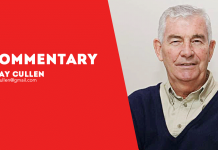By ROMEO F. QUIJANO, M.D.
Worldwide alarm about bioterrorism provided an opportunity to link together health and national/international security. Not only would health-care workers open the funds for a medical front in the War on Terror, but also military forces would routinely be mobilized as a response to health disasters. Imperial interventions in the health field began to be justified in the same terms as recent “humanitarian” military interventions.
Some analysts denounced the militarization of public health as worryingly authoritarian and strategically counterproductive, but to Bill Gates, the world’s second richest man, it was a welcome development. Gates’ endorsement was especially significant because his foundation had become the leading exemplar of philanthropy in the era of global health governance.
The Bill & Melinda Gates Foundation (BMGF) is now by far the world’s largest private foundation; with more than $50 billion in assets. The bulk of its activities are directed at the people of the imperialized world, where its ostensible mission involves providing birth control and combatting infectious diseases.
BMGF exercises power not only by means of its own spending but also through steering an elaborate network of “partner organizations” including nonprofits, government agencies, and private corporations. As the second largest donor to the UN’s World Health Organization (WHO), it is a dominant player in the formation of global health policy. It orchestrates elaborate public-private partnerships and is the chief funder and prime mover behind the Vaccine Alliance (formerly GAVI), a public-private partnership between the World Health Organization and the vaccine industry. The chief beneficiary of BMGF’s activities is not the people of the Global South but the Western pharmaceutical industry.
The Gates Foundation’s ties with the pharmaceutical and vaccine making industry are intimate, complex, and long-standing. Soon after its founding, BMGF invested $205 million to purchase stakes in major pharmaceutical companies, including Merck & Co., Pfizer Inc., Johnson & Johnson, and GlaxoSmithKline. BMGF’s interventions are designed to create lucrative markets for surplus pharmaceutical products, especially vaccines.
The vaccine producing companies belong to the largest interlocking corporations controlled directly or indirectly by a few highly secretive business and power elite who effectively rule the world and impose imperialist policies. Large corporations have become more and more interrelated through shared directors and common institutional investors.
In 2004, A team of Swiss systems theorists, utilizing a database of 37 million companies and investors worldwide, studied the share ownerships linking over 43,000 transnational corporations. They found that a core 1,318 companies, representing 20 percent of global operating revenues, “appeared to collectively own through their shares the majority of the world’s large blue chip and manufacturing firms – the “real” economy – representing a further 60 per cent of global revenues”.
When the team further untangled the web of ownership, it found much of it tracked back to a “super-entity” of 147 even more tightly knit companies – all of their ownership was held by other members of the super-entity – that controlled 40 per cent of the total wealth in the network. In effect, less than one percent of the companies were able to control 40 per cent of the entire network. Most were financial institutions.
The top 20 included Barclays Bank, JPMorgan Chase & Co, and The Goldman Sachs Group (21). These business elite are intimately linked to the Council of Foreign Relations (CFR). The CFR, founded in 1921, is a United States think tank specializing in U.S. foreign policy and international affairs. The CFR runs the Rockefeller Studies Program and convenes government officials, global business leaders and prominent members of the intelligence and foreign-policy community to discuss international issues and make recommendations to the presidential administration and the diplomatic community.
Some critics and political analysts have called the Council for Foreign Relations the “Shadow Government” (US) that is pulling the strings behind the scene.
***
The author is a retired professor of the Department of Pharmacology and Toxicology at the College of Medicine, University of the Philippines-Manila (Bulatlat.com)

